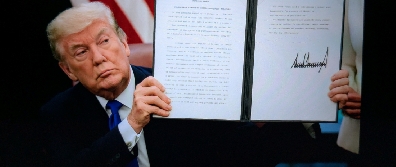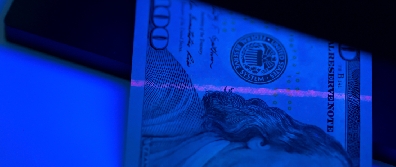Thinking about filing a premises liability lawsuit but not sure where to start? You’re not alone — and you’re in the right place. At Louis Berk Law, we’ve helped hundreds of clients take action after suffering preventable injuries on someone else’s property.
Whether you slipped in a store, got hurt due to poor lighting, or fell on a broken staircase, your case could fall under premises liability law — and the path to fair compensation starts here.
Let’s examine the process of filing a premises liability claim in Florida one step at a time.
Step 1: Prioritize Your Safety and Get Medical Attention
We know it sounds obvious — but we’ll say it anyway: Your health comes first.If you’ve been injured on someone else’s property, seek medical attention immediately, even if the injury seems minor. Some injuries don’t show symptoms immediately, and delaying treatment can hurt your recovery and your case.
Why is this important in a premises liability lawsuit?
-
Medical records are essential proof of your injuries.
-
Waiting too long to see a doctor can give the insurance company ammo to question your claim.
-
Some premises liability injuries (like head trauma or internal damage) get worse over time if ignored.
Bottom line? Get checked out — and do it fast.
Step 2: Hire a Premises Liability Lawyer You Can Trust
Not every slip, trip, or fall qualifies as a legal case — but if negligence was involved, you may have the right to sue. Before doing anything else, talk to a premises liability attorney.
At Louis Berk Law, we offer free consultations — so you lose nothing by having a professional review your situation. If your case is valid, we’ll walk you through next steps and start gathering evidence immediately.
Pro Tip: Make sure you work with a premises liability law firm that has a proven track record — not just any injury attorney. This area of law is complex, and experience matters.
Step 3: Build a Strong Case With Proper Documentation
To win a premises liability case, you need more than just a story — you need evidence.
Here’s what your attorney may collect:
-
Medical reports and treatment plans
-
Surveillance footage or photos from the scene
-
Incident reports (from police or store security)
-
Witness statements
-
Smart building data (from sensors or logs in modern properties)
This is where an experienced premises liability lawyer makes a real difference. They know how to find, organize, and present every piece of proof that strengthens your claim.
Step 4: Analyze Whether Your Case Can Move Forward
Once all the evidence is in, your attorney will assess whether your claim meets the legal standard to proceed.
What is a premises liability case, legally speaking?
It’s a case where a property owner (or occupier) failed to keep their premises reasonably safe, and as a result, you were injured. This could involve:
-
Wet floors with no warning signs
-
Poor lighting in stairwells or parking garages
-
Loose tiles, cracked sidewalks, or broken railings
-
Inadequate security in high-risk areas
If the facts line up, your lawyer will either start negotiating with the other side or prepare to take your case to court.
Step 5: Try to Settle — But Be Ready to Fight
Before going to trial, most premises liability lawsuits go through negotiation. That means your lawyer and the insurance company representing the property owner will try to reach a fair agreement.
But here’s the reality:Premises liability insurance companies will almost always lowball you at first.
That’s why having tough, strategic legal representation is critical. At Louis Berk Law, we never accept unfair settlements. We know how to push back and fight for what you deserve.
What does The Florida Bar say about settlements?
According to The Florida Bar, resolving a case through settlement can benefit both parties by saving time and minimizing legal costs. It also offers a more predictable outcome than taking the case to trial, especially in complex premises liability cases.
Why settle instead of going to court?
-
It’s faster — no waiting months or years for a court date.
-
It’s cheaper — fewer legal costs than a full trial.
-
It’s private — court records are public, settlements aren’t.
Still, if the other side refuses to offer what your case is worth, we won’t hesitate to take it all the way.
Step 6: If Necessary, File the Lawsuit and Go to Trial
When negotiations fail, your premises liability attorney will file a formal complaint in court. This starts the litigation process, which includes:
-
Exchanging evidence with the defense
-
Depositions and sworn statements from both parties
-
Expert testimonies (medical professionals, safety engineers, etc.)
-
The trial itself — with verdict, possible appeals, and judgment
Some premises liability settlements happen during trial. Others go all the way to a jury decision. Either way, we stay by your side every step of the way.
Real-life example: The Tesla case
In a high-profile case involving Tesla, the company was sued for injuries sustained on its premises. After the plaintiff initially won a large jury award, Tesla appealed — arguing for a reduction in the premises liability settlement. This case highlights how litigation can continue even after a verdict and why it’s crucial to have a legal team that’s prepared for every phase, including appeals.
Final Thoughts: Know Your Rights — and Don’t Settle for Less
Filing a premises liability lawsuit isn’t just about money — it’s about accountability. When property owners cut corners and someone gets hurt, they need to be held responsible. And while the process can feel overwhelming, you don’t have to do it alone.
At Louis Berk Law, our team of seasoned premises liability attorneys in Florida will help you pursue the justice and compensation you deserve — whether that’s through a powerful settlement or a strong win in court.
Book your free consultation today. We’ll tell you if you have a case, and if you do, we’ll fight for it like it’s our own.
Original article can be found here: https://www.louisberklaw.com/blog/premises-liability-lawsuit-in-florida-step-by-step-guide-from-the-legal-experts/














Comments